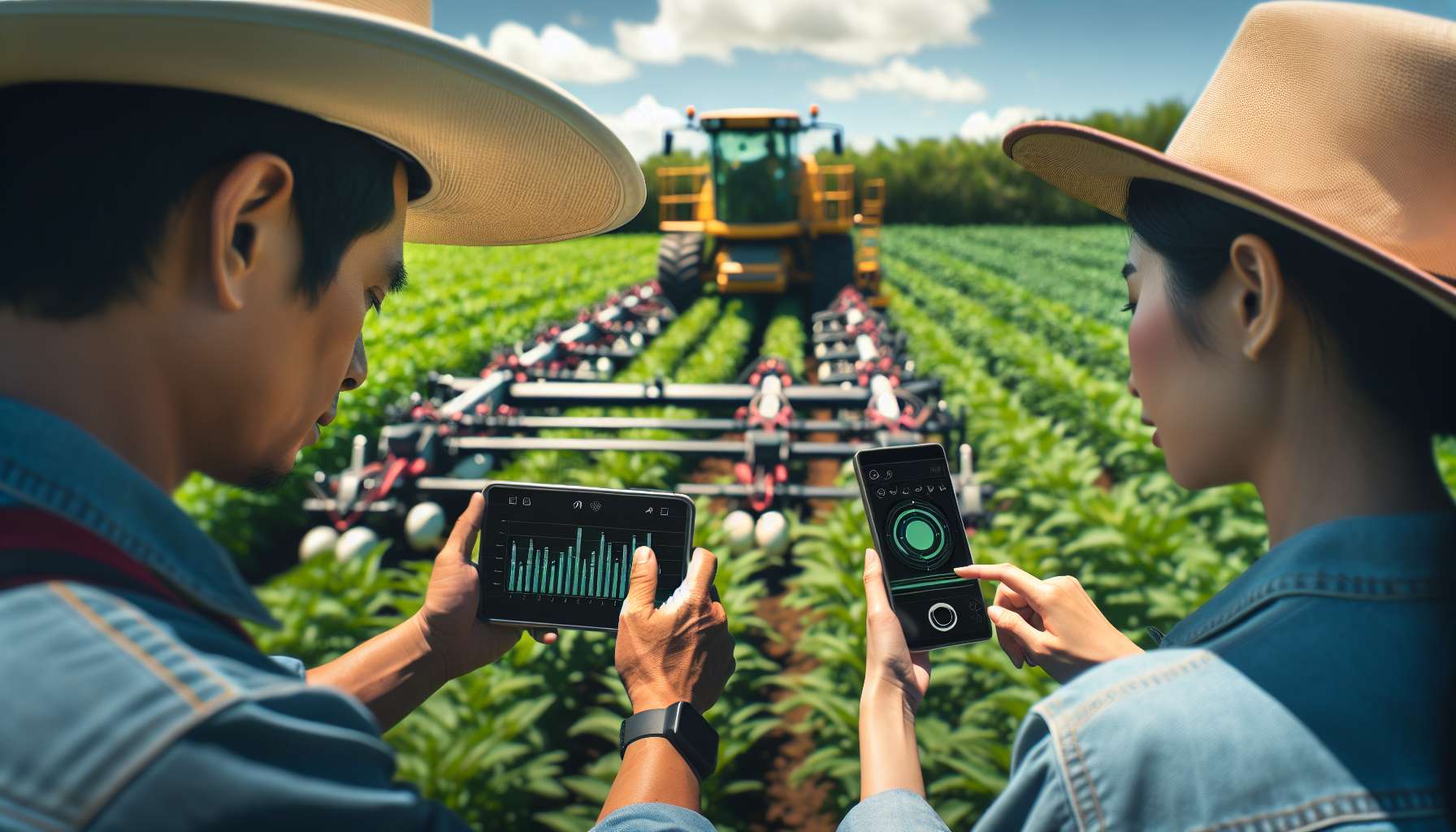The Power of AI in Advancing Modern Agriculture
As technology continues to evolve, industries across the board are finding innovative ways to leverage its power. One such industry that has seen significant advancements is agriculture. With the integration of artificial intelligence (AI), farmers and agricultural businesses are experiencing a revolution in efficiency, productivity, and sustainability. In this article, we will explore the role of AI in modern agriculture and the exciting advancements it brings.
1. Precision Farming
AI has paved the way for precision farming, a practice that optimizes crop production by using data-driven insights. Through the use of sensors, drones, and satellite imagery, AI algorithms analyze various factors such as soil composition, weather patterns, and crop health. This data is then used to make informed decisions regarding irrigation, fertilization, and pest control. By precisely targeting resources, farmers can minimize waste, reduce costs, and maximize yields.
2. Crop Monitoring and Disease Detection
AI-powered systems can monitor crops in real-time, detecting early signs of diseases, nutrient deficiencies, or pest infestations. By analyzing images captured by drones or cameras installed in fields, AI algorithms can identify specific patterns and anomalies that may indicate potential issues. This early detection allows farmers to take immediate action, preventing the spread of diseases and minimizing crop losses. Additionally, AI can recommend targeted treatments, reducing the need for excessive pesticide use.
3. Autonomous Farming
Imagine a farm where machines work tirelessly, without human intervention. AI is making this a reality through autonomous farming. Self-driving tractors equipped with AI algorithms can perform tasks such as planting, harvesting, and tilling with precision and efficiency. These machines can navigate fields, avoiding obstacles and adjusting their actions based on real-time data. By automating repetitive tasks, farmers can focus on higher-level decision-making and strategic planning.
4. Supply Chain Optimization
AI is not only transforming on-farm operations but also revolutionizing the entire agricultural supply chain. By analyzing historical data, market trends, and consumer preferences, AI algorithms can optimize logistics, inventory management, and distribution. This ensures that the right products are delivered to the right place at the right time, minimizing waste and reducing costs. Additionally, AI can help predict demand, allowing farmers to plan their production accordingly.
5. Sustainable Agriculture
With the global focus on sustainability, AI plays a crucial role in promoting environmentally friendly practices in agriculture. By optimizing resource allocation, AI helps reduce water usage, minimize chemical inputs, and prevent soil erosion. Furthermore, AI-powered systems can analyze weather patterns and predict climate changes, enabling farmers to adapt their practices and mitigate potential risks. By embracing AI, agriculture can become more sustainable, ensuring the long-term viability of the industry.
Conclusion
The integration of AI in modern agriculture brings a multitude of benefits, from precision farming and crop monitoring to autonomous machinery and supply chain optimization. By harnessing the power of AI, farmers and agricultural businesses can increase productivity, reduce costs, and contribute to a more sustainable future. As AI continues to advance, the possibilities for its application in agriculture are endless. Embracing these advancements will undoubtedly lead to a more efficient and prosperous agricultural industry.





